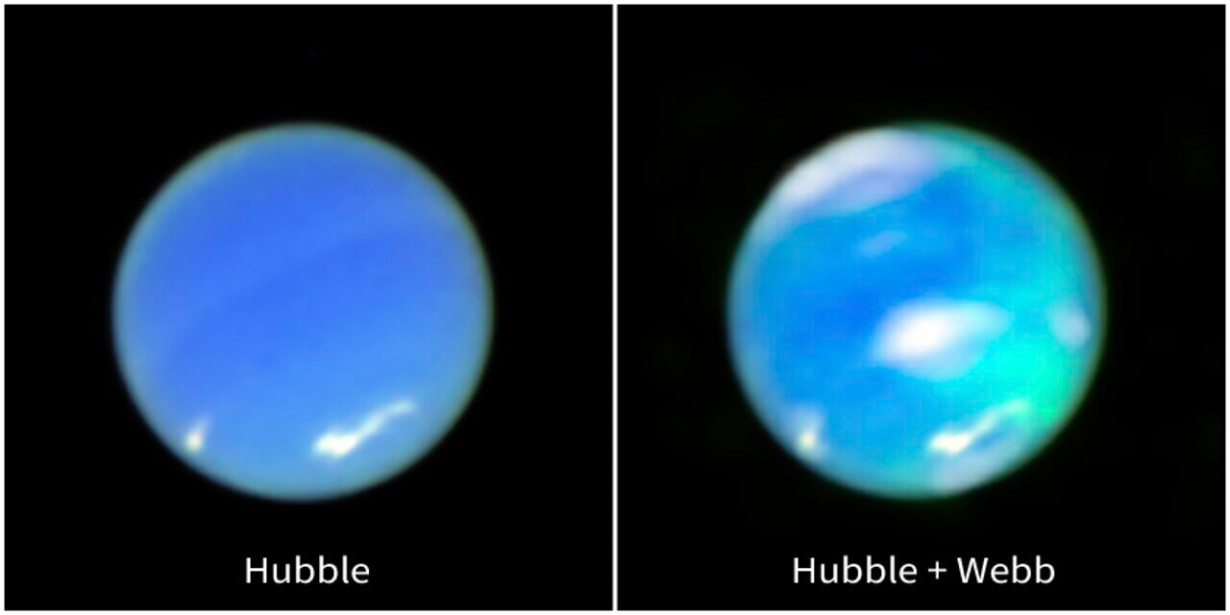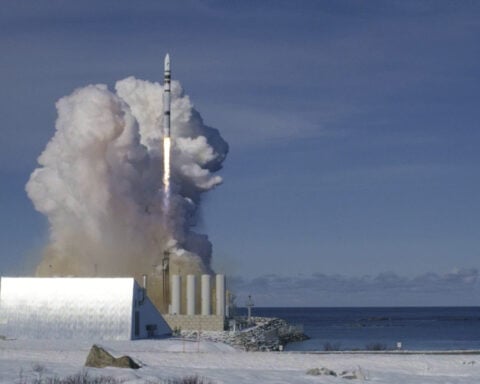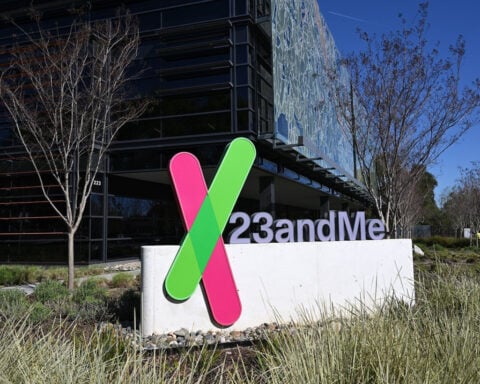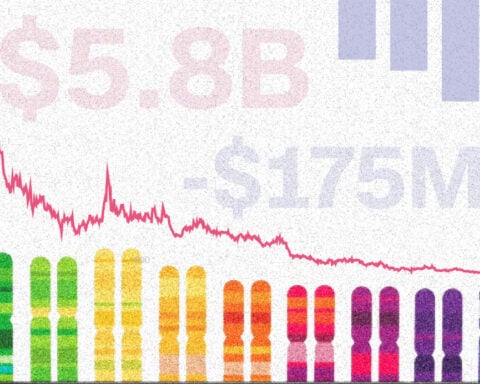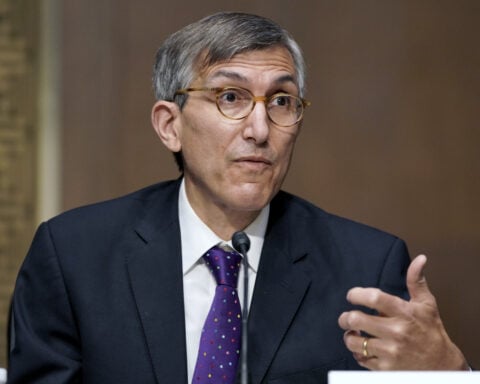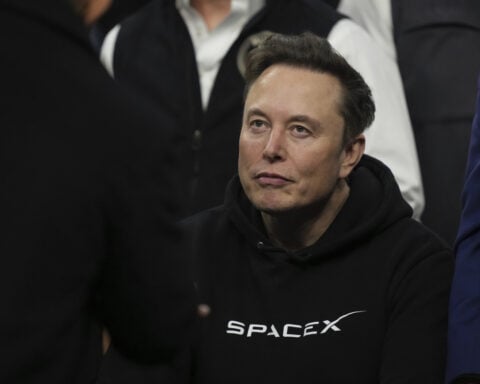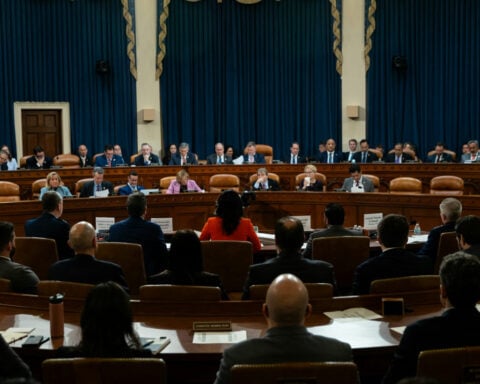WASHINGTON (AP) — Neptune's glowing auroras are captured in the best detail yet by NASA's James Webb Space Telescope.
Hints of auroras were first faintly detected in ultraviolet light during a flyby of the Voyager 2 spacecraft in 1989. Webb captured Neptune's shimmering lights in infrared light, providing direct evidence they exist.
NASA released the images on Wednesday, and the results were published in the journal Nature Astronomy.
Auroras on any planet occur when electrically charged particles from space enter and collide with molecules in the atmosphere, creating a series of reactions that emits light.
On Earth, auroras tend to occur near the polar regions, producing spectacular northern and southern lights.
Scientists have studied auroras on Saturn and Jupiter for decades, but Neptune, the farthest planet from the sun, has been harder to see up close.
“Neptune has always been elusive," said University of Reading planetary scientist James O'Donoghue, co-author of the new study. Its auroras "had only been seen by Voyager, and we’ve been trying to see it again ever since.”
Neptune's auroras occur near the mid-latitudes of the planet, not the polar regions, because of differences in its magnetic field, which determine the span of auroras, said O’Donoghue.
More than three decades after Voyager 2's pass, scientists have seen Neptune's auroras again with the powerful Webb telescope, producing “the first robust detection," co-author Heidi Hammel of the Association of Universities for Research in Astronomy, said in an email.
The researchers also revealed that Neptune's atmosphere has cooled significantly since the 1980s, which may have somewhat dimmed the light of the auroras.
___
The Associated Press Health and Science Department receives support from the Howard Hughes Medical Institute’s Science and Educational Media Group and the Robert Wood Johnson Foundation. The AP is solely responsible for all content.

 Trump has begun another trade war. Here's a timeline of how we got here
Trump has begun another trade war. Here's a timeline of how we got here
 Canada's leader laments lost friendship with US in town that sheltered stranded Americans after 9/11
Canada's leader laments lost friendship with US in town that sheltered stranded Americans after 9/11
 Chinese EV giant BYD's fourth-quarter profit leaps 73%
Chinese EV giant BYD's fourth-quarter profit leaps 73%
 You're an American in another land? Prepare to talk about the why and how of Trump 2.0
You're an American in another land? Prepare to talk about the why and how of Trump 2.0
 Chalk talk: Star power, top teams and No. 5 seeds headline the women's March Madness Sweet 16
Chalk talk: Star power, top teams and No. 5 seeds headline the women's March Madness Sweet 16
 Purdue returns to Sweet 16 with 76-62 win over McNeese in March Madness
Purdue returns to Sweet 16 with 76-62 win over McNeese in March Madness
